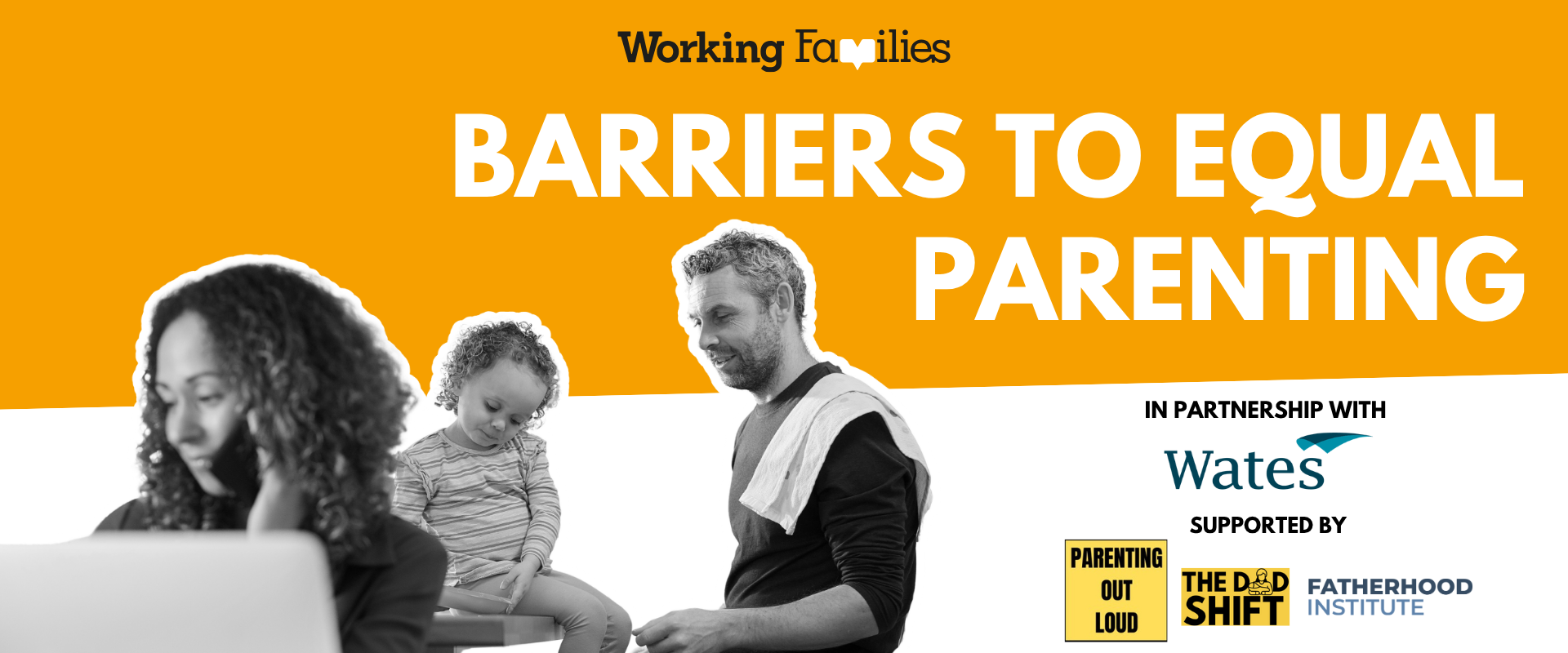
Our new research
In partnership with Wates Group, we surveyed 5,000 working fathers with at least one child age 0-17, across the UK.
We asked them about how they would like to balance parenting and work, their experiences in the workplace, and the changes they would want to see in the workplace.
We’re still some way off equal parenting
- The UK has a gender pay gap of 13.1%.
- The motherhood penalty: Mothers with two children take home 26% less income than women without children, whilst men with at least two children are paid 22% more than those without (Fawcett Society 2023).
- In 2022, working fathers were spending only 65% of the time working mothers spent on unpaid childcare (up from 54% in 2014/15) (Fatherhood Institute 2022).
- Fathers are less likely to access policies that support work and family than mothers (Moran & Koslowski 2019).
Why does equal parenting matter?
| Family wellbeing & equality | Gender pay gap | Child development |
| Increasing fathers’ entitlement to paid leave leads to parents in heterosexual couples spreading unpaid care and household responsibilities more equally, even after their leave ends (Tamm 2019). Taking paternity leave, particularly longer periods, is associated with higher levels of mental wellbeing for both fathers and mothers (Philpott et al 2022; Redshaw & Henderson 2013). | In Sweden, each month that a father took leave resulted in a 7% increase in the mother’s earnings (IFAU 2010). Mothers are more likely to be in work when their child is 3 years old if the father is more involved in childcare nine months post-birth (Norman 2020). | Taking paternity leave of two weeks or more led to children having more positive views of their relationship with their father (Petts et al 2020). |
What’s holding dads back?
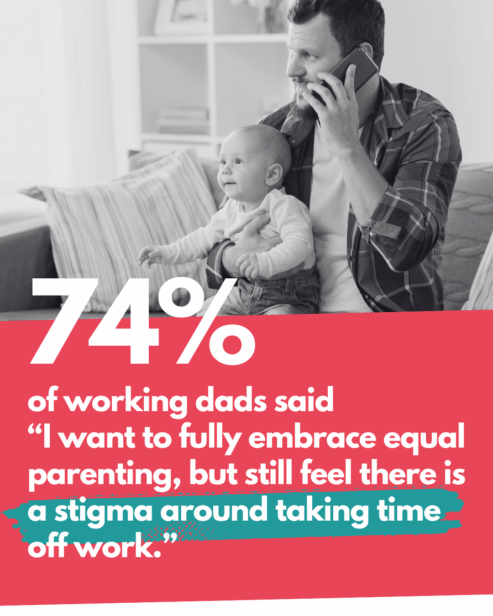
Workplace stigma
- 50% of working fathers say they feel nervous asking for flexibility/time off from their employer for childcare responsibilities.
- 28% worry that asking for more flexibility would make them look less committed.
- 22% worry it would affect their career progression.
- 20% say there is a perception their partner should cover all childcare instead.
A generational story
Younger fathers are more worried about perceptions in the workplace
- 64% of Gen Z fathers (28 and under) feel nervous asking for flexibility, compared to only 40% of Gen X (45-60 year olds).
- 31% of Millennial fathers (29-44 year olds) were worried that asking for flexibility would make them look less committed vs 22% of Gen X.
- 20% of Gen Z and Millennial fathers said they felt judged for prioritising family commitments vs 15% of Gen X.
- 84% of Gen Z fathers said they wanted to embrace equal parenting but felt there was stigma around taking time off work, vs 67% of Gen X.
Questioning childcare responsibilities
- Millennial fathers (24%) and fathers of pre-school age children (25%) were most likely to have been asked “where’s your wife/partner?”.
- 21% of working fathers have been asked “can your partner cover instead?”.
- There were also questions around whether it was really urgent (20%) or whether they could arrange alternative care (19%).
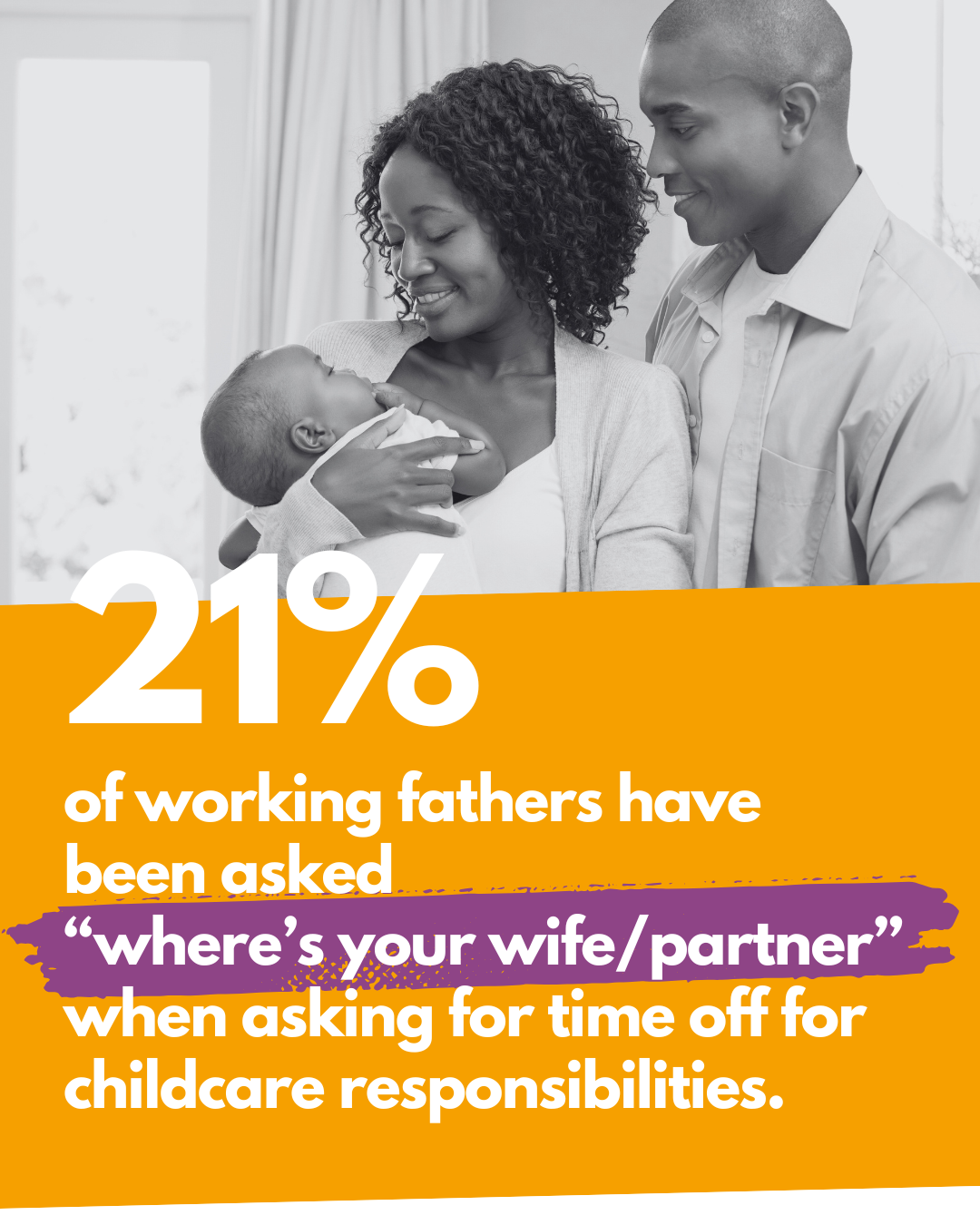
Dads’ own worries
- 24% feel guilty asking colleagues to cover their work.
- 22% worry their boss will think less of them.
- 20% feel their partner is expected to cover all childcare duties.
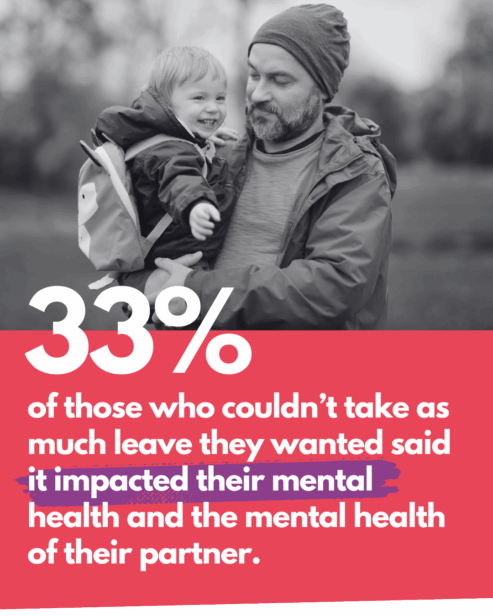
Leave for new fathers
- 35% of dads said they couldn’t take as much parental leave as they wanted. 6% took no leave at all.
- However, 73% of Gen Z dads said they took the leave they wanted vs only 55% of Gen X dads.
- 87% said they would be comfortable taking their full paternity leave for another child.
- Of those who wouldn’t, 32% would be worried it would affect their career progression and 26% would be worried it would look like they didn’t take their job seriously.
All the family is impacted
- 27% of fathers have missed out on time with their child.
- 26% have felt stressed or guilty about not meeting their child’s needs.
- 24% have noticed an extra strain on their partner.
- 42% had been able to spend more quality time with their child.
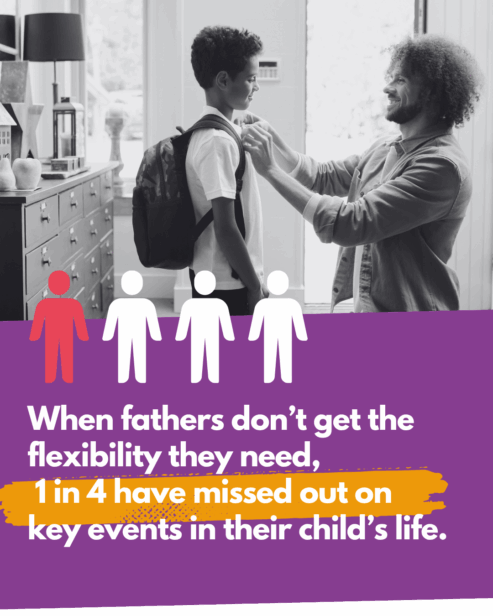
Why flex for fathers matters
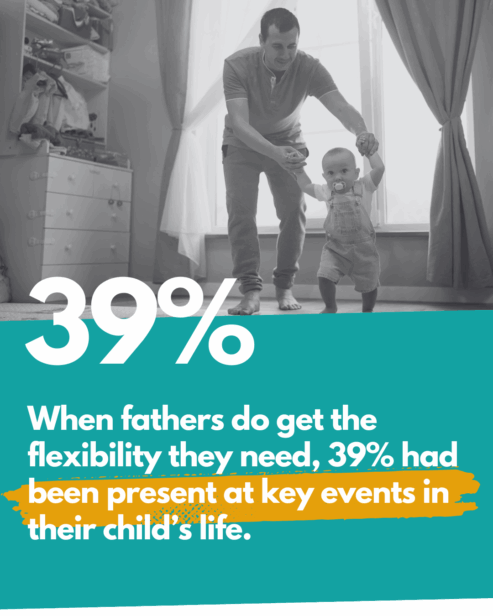
Fathers whose employer had given them flexibility told us about the difference it had made to their families:
- 42% had been able to spend more quality time with their child.
- 42% had been there for their child when they were sick or in an emergency.
- 37% had better supported their partner.
What’s the good news?
- Millennial and Gen Z dads were the most likely (28%) to say in an ideal world they’d want to do more of the childcare than their partner (vs 16% of Gen X and 7% of Boomers (61-79 year olds)).
- 88% said they feel able to talk about balancing work and being a father in their workplace – and this was fairly consistent across generations.
What are the solutions?
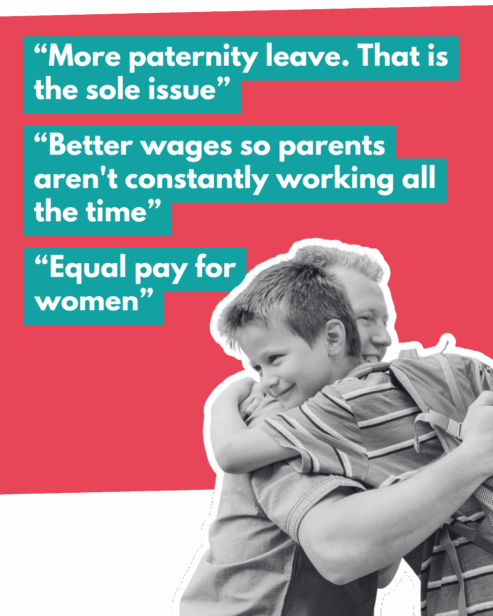
What dads want
Working dads told us they wanted:
- 24%: normalise dads taking time off for childcare.
- 31%: equal parenting leave for all genders.
- 30%: more flexible working hours.
- 29%: more open conversations.
- 28%: highlight positive role models of working dads.
- 29%: better awareness of the barriers for working fathers.
What employers can do next
Take the Family Friendly Workplace Certification
Become a Working Families employer member
Use the Working Families’ Supporting Fathers toolkit
- Focus on culture as well as policy.
- Open up conversations.
- Normalise fathers taking time for childcare responsibilities.
- Recognise some fathers may face greater challenges at work.
- Offer longer, better-paid leave for new parents of all genders.
With thanks to our partner, Wates Group.
And thanks to the following organisations for supporting the campaign:
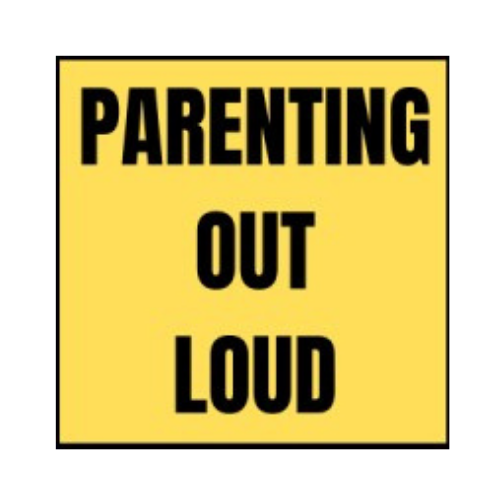


Read more about the campaign

Barriers to Equal Parenting – new research
When it comes to attitudes about caregiving, there’s still got a long way to go before men and women are seen as equals. Our latest research, in partnership with Wates Group, lays bare how perceptions of parenting are holding back both fathers and mothers.
